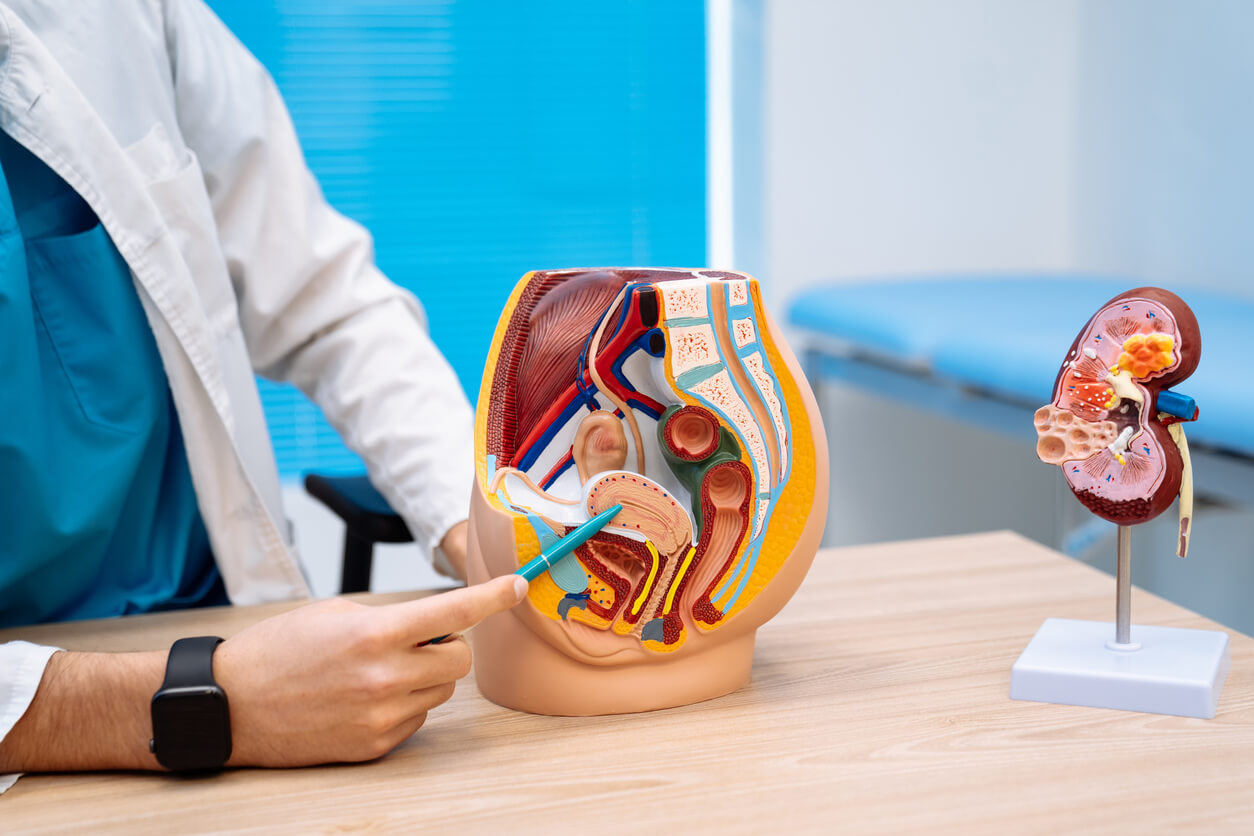BLOG

Dec 23,2024
When and Why You Should Visit a Urologist
Health is often seen with what is visible, aches, fevers, or injuries. Yet, there’s a part of our well-being that operates in the background, only getting interrupted when something goes wrong. The urinary system, a vital part of our body, plays a crucial role in maintaining balance in the body. Despite its significance, many tend to overlook symptoms that point to urological issues, leading to delays in seeking medical help.
In India, the statistics speak volumes. Prostate cancer is the second most common cancer among Indian men, and urinary tract infections (UTIs) account for a significant number of outpatient visits annually. Untreated cases such as kidney stones affect many in India and often escalate into more serious complications. Knowing what’s the right time to consult a urologist can make the difference between a manageable condition and a severe health crisis.
The Role of a Urologist
Urologists are specialists trained to diagnose and treat conditions of the urinary tract and male reproductive system. Their expertise spans a wide range of issues, from common ailments like kidney stones and UTIs to more complex problems such as male infertility, prostate cancer, and bladder dysfunction. Beyond treatment, urologists also focus on prevention and early detection of potential issues.
They not only treat symptoms but also delve into the root causes, providing comprehensive solutions that improve both immediate health and long-term quality of life.
When Should You See a Urologist?
Many people hesitate to consult a specialist, often attributing their symptoms to aging or minor, passing discomfort. However, certain signs and conditions require prompt attention. Here are some key instances when visiting a urologist becomes essential:
1. Persistent Urinary Tract Infections (UTIs)
While occasional UTIs are common, recurring infections could signal underlying issues such as kidney stones, bladder dysfunction, or structural abnormalities in the urinary tract. A urologist can perform detailed evaluations to identify the cause and prevent future episodes.
2. Kidney Stones
Sharp, severe pain in the back or side, nausea, and blood in the urine are the well-known signs of kidney stones. In India, certain regions, often referred to as "stone belts," have higher incidences due to dietary and environmental factors. Urologists employ advanced diagnostic tools and minimally invasive procedures to manage stones effectively.
3. Prostate Health Concerns
Men over 50 are particularly vulnerable to prostate-related issues, including benign prostatic hyperplasia (BPH) and prostate cancer. Early screening and regular check-ups with a urologist can significantly improve outcomes for these conditions.
4. Blood in Urine (Hematuria)
The presence of blood in urine, whether visible or detected through testing, is a symptom that warrants immediate medical evaluation. Causes range from infections and kidney stones to more serious issues like cancer, all of which require specialist intervention.
5. Male Infertility and Sexual Health
Conditions like erectile dysfunction, low testosterone, or infertility often have underlying medical causes that can be addressed by a urologist. Seeking help not only alleviates symptoms but also enhances overall health and well-being.
6. Incontinence
Loss of bladder control can affect people of all ages and has a significant impact on daily life. A urologist can offer solutions, ranging from lifestyle modifications to advanced medical treatments, to restore confidence and comfort.
Why Early Intervention Matters
Delaying a visit to the urologist can lead to the progression of manageable conditions into more severe health issues. For example, untreated kidney stones can cause infections or kidney damage, while delayed detection of prostate cancer can reduce treatment options and survival rates.
Proactive care is particularly critical for older adults and those with pre-existing conditions like diabetes, which can exacerbate urological problems. Regular screenings, especially for middle-aged men, play a pivotal role in early detection and prevention.
Preparing for Your Visit
A urology consultation typically begins with a discussion of your symptoms, medical history, and lifestyle. Diagnostic tests, such as urine analysis, imaging studies (ultrasound or CT scan), or blood tests, may be recommended based on your condition. The approach to treatment could involve medications, minimally invasive procedures, or, in some cases, surgery.
Understanding that urologists are trained to handle these discussions with professionalism and care can help alleviate any apprehensions about the visit.
Statistics and Trends in Urological Health
The rise in urological conditions in India is linked to factors such as dietary habits, sedentary lifestyles, and limited awareness about preventive healthcare. According to recent studies around 12% of the population is expected to develop kidney stones at some point in their lives. Such figures underscore the need for widespread awareness and timely intervention.
A Step Towards Better Health
Urological health is an integral part of overall well-being, yet it often goes unnoticed until problems arise. By paying attention to the body’s signals and seeking timely consultation with a urologist, you can prevent minor discomforts from escalating into major health concerns.
For those in Chennai, Dr. Karthikeyan V S, a well-known uro-andrologist, offers specialized care in male infertility and men's health. His expertise in microsurgical procedures and commitment to patient well-being make him a reliable choice for addressing urological concerns.
Copyright © . Karthikeyan V S. All Rights Reserved.
Powered By: Cortex Media Marketing Pvt Ltd


